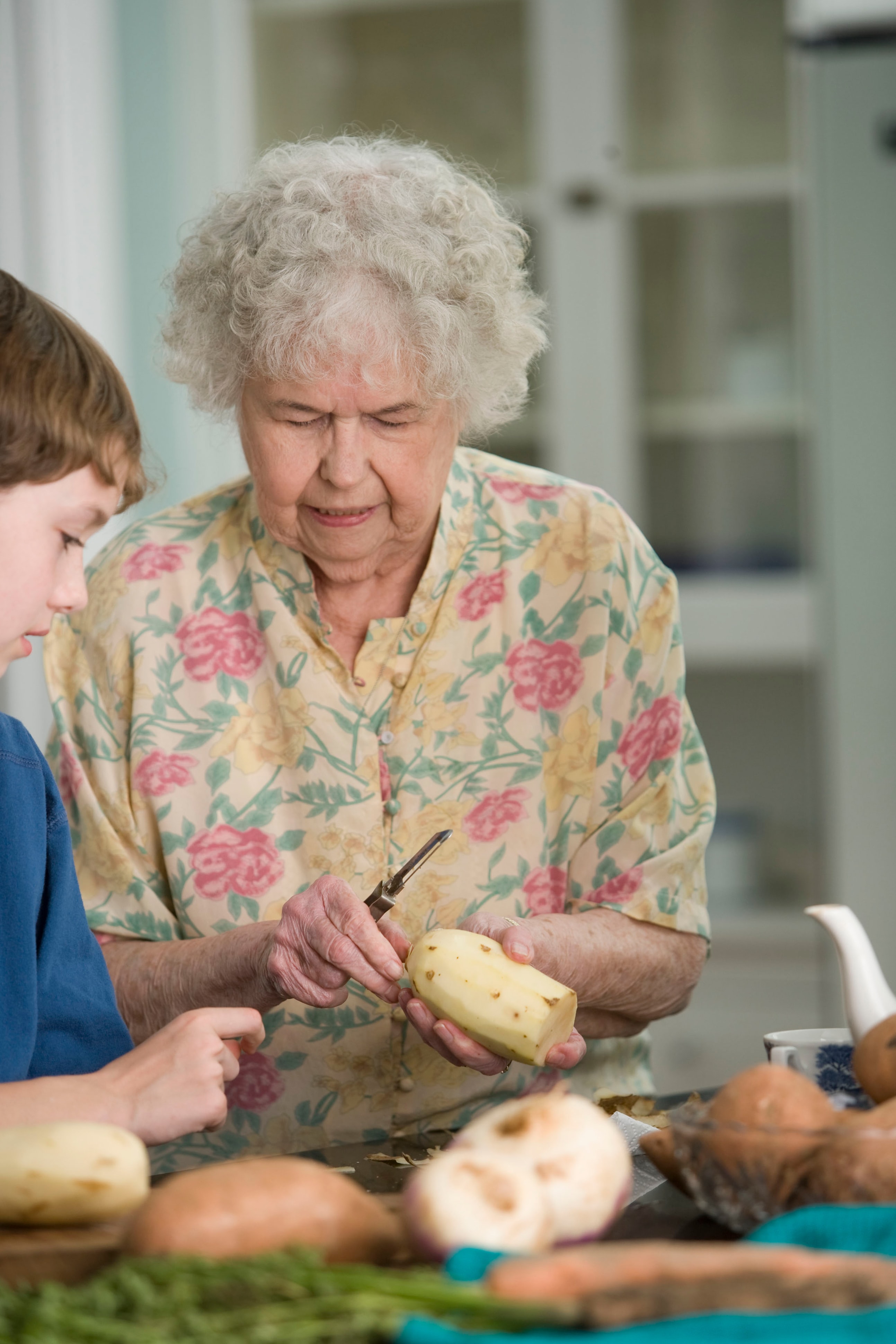News item written by Senso5 team
As with all industrialised countries, Switzerland has an aging population. With more than 18.7% senior citizens today, in 2040 the proportion in our country will be more than 25% (Federal Statistics Office, 2019). In Switzerland, the malnutrition rate amongst older people is 5% for people at home aged between 65 and 79 years old, and 10% for people aged 80 and above (Morisod, 2010).
The challenge of “aging well” is therefore hugely important. Staying in good health for as long as possible is a major public health issue. To achieve this, it’s important to ensure the quality of life needed to maintain older people’s autonomy (Escalon & Francois, 2010).
In light of this situation, in 2015 the Swiss canton of Valais put in place a cantonal action plan (PAC) for the promotion of health for the elderly, called Plateform 60+, on behalf of the Public Health Service. Co-funded by Promotion Santé Suisse and Promotion Santé Valais, the PAC includes themed modules for seniors about diet and physical activity, mental health, preparing for retirement, and substance abuse. Amongst the essentials for older people’s autonomy and health, diet plays a critical role. The Senso5 Foundation [1] was tasked with developing tools for a project called “Diet, autonomy, quality of life for seniors”.
Malnutrition-related risks increase with age. Unfortunately, these risks are too rarely taken into account and once malnutrition has been diagnosed, it is often difficult to re-establish a good nutritional state. Malnutrition has multiple consequences, but often it starts with weight loss and fatigue, a weakening of the immune system and various infections (urinary, pulmonary), but also loss of muscle mass, which can lead to dizziness and loss of balance.
Alongside malnutrition, dehydration is an equally widespread problem amongst the elderly. In Switzerland about 20% of people aged over 75 years old drink less than a litre of fluids a day, whereas the Swiss Nutrition Society recommends one to two litres a day (Federal Office of Statistics, 2015).
Malnutrition and dehydration are two conditions that can have severe consequences for health as well as independence and quality of life. Generally, those affected have to be hospitalised and then placed in nursing homes, due to slow recovery and loss of autonomy. Action to prevent these conditions is therefore important to enable people to stay at home as long as possible.
This led Senso5 Foundation to create tools to reduce the risks of malnutrition and dehydration, thanks to collaboration with the relevant professionals and caregivers working with seniors.
These tools include a brochure called “Plates and Trainers, more pleasure in retirement”, published in French and German, which shares recommendations for diet and movement, as well as practical tips for organising the kitchen and preventing accidents in the home. With accessible, non-stigmatising information and lots of pictures, this brochure is aimed at seniors and those close to them, but also at professionals who want to build their knowledge or use it more in their work.

Two digital tools are also available on the Foundation’s website (www.senso5.ch). The first lets anyone test their senses using a questionnaire. It then provides tailored advice based on the answers given, to help limit sensory decline or find alternatives to this decline. The second tool offers tips for the kitchen and a range of healthy recipes for seniors. The recipes can be adapted for different numbers of people (two or four) and ways of measuring ingredients (based on grams or utensils). The recipes are organised into categories (for example, quick dishes, stews, cooking with leftovers….), and new recipes are added regularly.
Lastly, Senso5 Foundation has developed 15 educational videos about the food challenges that can affect seniors. Filmed as a dialogue between a senior in their own kitchen and another adult, the videos cover various topics, such as kitchen hygiene, appetite, digestion problems or mobility. These short segments are designed for the general public and use a light-hearted but professional tone by involving experts to explain or go further into the various themes.
To complete these tools and optimise malnutrition prevention by raising awareness among relevant professionals, training sessions are delivered in health centres and various other institutions (health-related universities, ongoing training, day centres). There is a particular focus on training these multipliers, as with their experience on the ground and the challenges they encounter on a daily basis, they are invaluable informers and actors of prevention among seniors. Thanks to collaboration and communication across disciplines, all stakeholders can contribute with the shared goal of maintaining the autonomy and quality of life of seniors as long as possible.
Through its work, Senso5 Foundation wants seniors to be actors of their own diets, as much in relation to the choice of what’s on their plate, as around the daily management of this food (including preparation). In this way Senso5 Foundation acts at different levels, taking into account individual needs, by analysing the situation and making arrangements to enable autonomy.
Achmann N, Burla L, Kohler D. (2015) La santé en Suisse – Le point sur les maladies chroniques Rapport national sur la santé 2015. Observatoire suisse de la santé, Neuchâtel
Escalon, H. & Beck, F. (2010). Perceptions, connaissances et comportements en matière d’alimentation: Les spécificités des seniors. Gérontologie et société, vol. 33 / 134(3), 13-29.
Morisod, J. (2011). Dénutrition de la personne âgée. Revue Médicale Suisse, 279(3), 209-210.
Office fédéral de la statistique. (2019). Effectif de population à la fin du 2e trimestre 2020
[1] Senso5 Foundation is a non-profit public interest foundation whose main objective is to work with a range of audiences to develop a healthy relationship with food.

